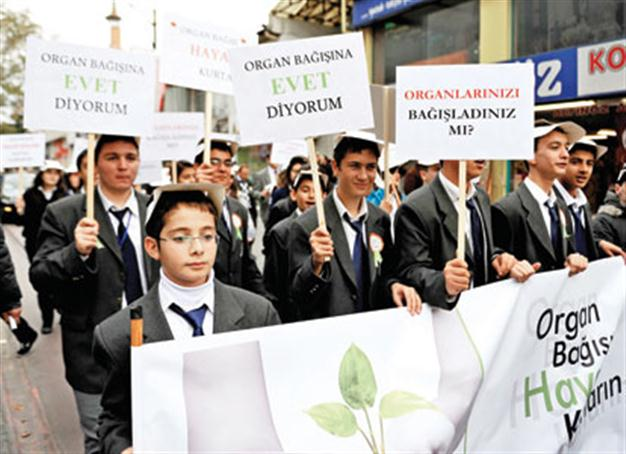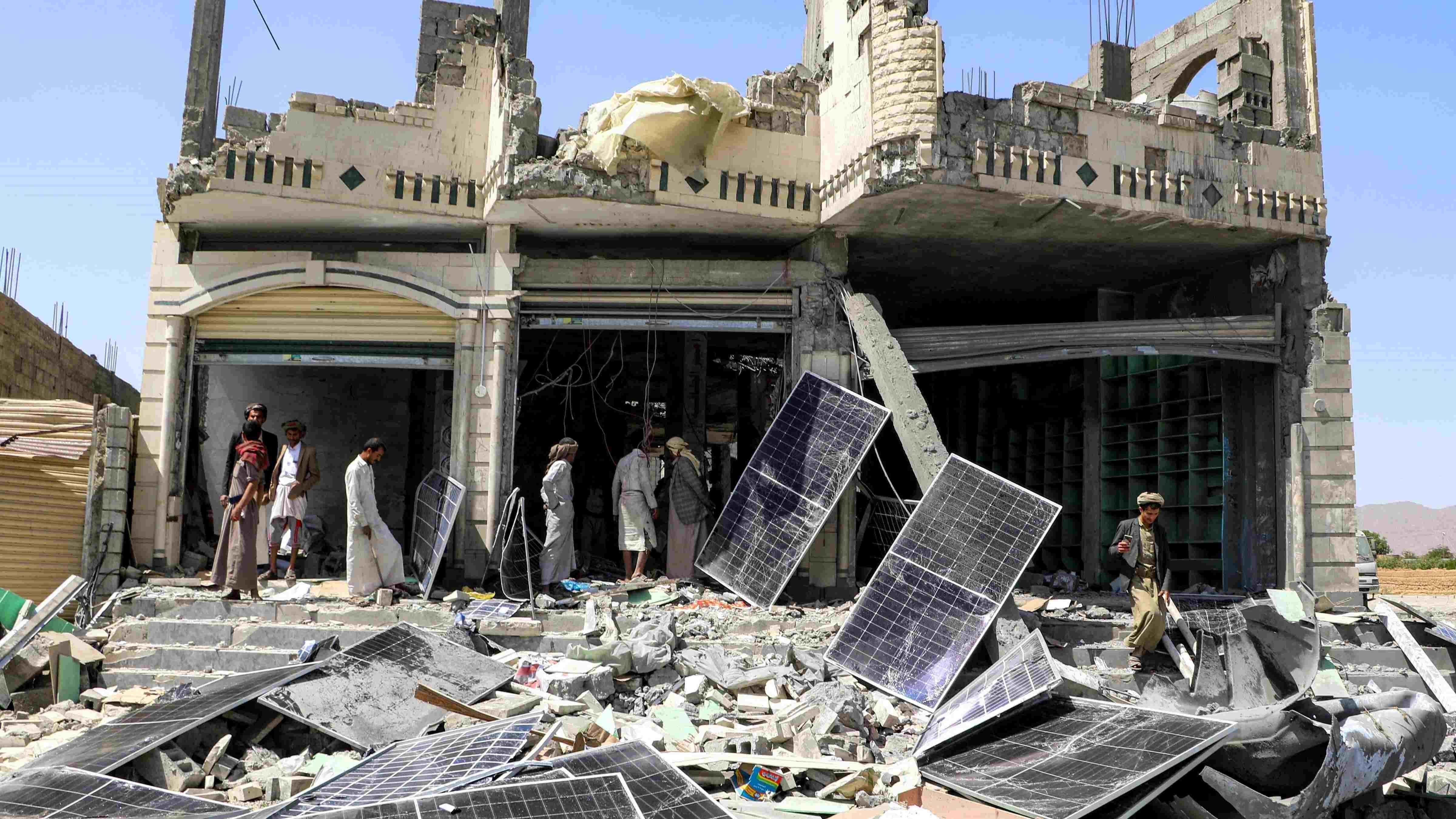Turkey needs more organ donations, officials say
Çağla Pınar Tunçel ISTANBUL- Hürriyet Daily News

On the organ transplant week, which is celebrated between Nov. 3 and 9, several campaigns were held all around Turkey to raise awareness on the issue. AA photo
More than 50,000 patients in Turkey are suffering from kidney failure and are in need of transplants, according to an organ transplant official in Istanbul. The situation for patients who need other life-saving organs such as a heart, pancreas, liver, small intestine or cornea, however, is far worse.
Many of the problems stem from low public awareness on organ donation that is exacerbated by the lack of a patient databank, said Mümin Uzunalan, the organ transplant coordinator at Istanbul’s Memorial Hospital.
The number of organ donors is increasing, with 3.7 percent of the population now registered to provide organs, but Turkey needs a databank to help increase the number of transplants, he said.
“For instance, if a man dies in [the southern province of] Antalya, but he is registered for organ donation at a hospital in [the Central Anatolia province of] Konya, the organs cannot be transferred due to a lack of information – even if he has a will stating his wish to donate his organs,” Uzunalan said.
Uzunalan said there was a lack of coordination between staff at intensive care departments and Health ministry officials and added that staff should inform officials immediately of deaths because waiting could lead to damage to the brain.
In the event of brain death, independent tests are conducted by four doctors on the patient in order to confirm the death, Uzunalan said.
Finding a useable organ or tissue from a cadaver is still much less successful than obtaining working organs from people who recently lost their lives.
Although there is a common belief that Islam forbids the donation of organs, the Turkish Religious Affairs Directorate’s Supreme Council declared in 1980 that cadaver organ donation for the purpose of transplantation was religiously permissible. An official from the directorate told the Hürriyet Daily News that the institution’s muftis and imams held nationwide training sessions on the issue.
Injuring the dead body is prohibited only by Buddhism, even to save a human life, said the coordinator.
A single patient requiring a dialysis machine costs the state more than 50,000 Turkish Liras, according to a recent health report from a Turkish hospital. There are more than 55,000 patients who are suffering from chronic kidney failure, and this number is expected to reach 95,000 by 2016, according to Uzunalan. Despite the high number of patients, only 17 percent have been able to receive organ transplants. The high costs have forced the state to focus on the issue of organ donation and accelerate the process of finding donors, Uzunalan said.
Efkan Erkan, who has been suffering from chronic kidney failure for 13 years, has yet to find a kidney donor.
“I studied at Istanbul University for political science and public administration, but following my graduation, neither state institutions nor the private sector employed me because of my disease,” said Erkan.
Erkan said he faced more difficulties than other people with disabilities. “I have to connect up to the dialysis machine three times a day and three days a week; employers would not allow me to leave the office during work times.”
















